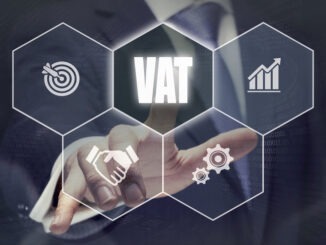As reported by Simply Business, small businesses eagerly await Chancellor Jeremy Hunt’s Spring Budget, which outlines vital changes affecting them, from National Insurance cuts to VAT threshold adjustments
In a continuously challenging economic landscape, financial worries are high – especially for small business owners and the self-employed. It’s more important than ever before that the government supports small businesses when they need it most.
Here are the five key Spring Budget announcements that could impact your business.
1. Reducing National Insurance contributions
The chancellor rounded up his Budget statement with a reduction in National Insurance contributions – which has been cut for the self-employed from 9 per cent to 6 per cent.
This 2p cut comes after a 1p cut was announced during the Autumn Statement. According to the chancellor, cutting National Insurance could save the self-employed an average of £650 a year when combined with the need to no longer pay Class 2 contributions.
2. Increasing the VAT registration threshold
Another change announced in this year’s Budget is an increase to the VAT threshold, which had previously remained the same since April 2017. The VAT threshold has now been raised to £90,000 from £85,000.
Historically, there are many smaller businesses which attempt to keep their business turnover below this threshold in order to avoid registering for VAT – potentially missing out on new business growth opportunities.
Michelle Liu is the owner of Mama Chen’s, a noodle and dumpling restaurant based in Romford, who found success after a series of pop-ups and a residency at the Gantry Hilton in London.
However, after Michelle hit the VAT threshold of £85,000, the tax burden threatened her business and the prospect for further growth plans. It led to her leaving the residency and setting up in a space in Romford.
Michelle wanted the chancellor to raise the VAT threshold to £130,000 – so the increase of just £5,000 came as a “disappointment”. She said: “While this is a move in the right direction, it will only help relatively few SMEs. I thought he would raise it to £100,000 at least.”
By raising the VAT threshold, small businesses can have more opportunities to grow without the need to pay VAT.
Daniele Paduano owns pizza restaurant Kotch, located in Stratford, and agrees with Michelle’s comments, saying: “The figure of £90,000 can only help new businesses to get started but once you go past the threshold you no longer benefit from this. £90,000 works out to £1,700 a week – no business can survive while paying 20 per cent VAT on that.”
3. Fuel duty freeze extended again
As inflation remains high and the country continues to struggle with the cost of living crisis, the government has decided to keep fuel duty frozen once more (for the 14th year in a row).
The current rate will be maintained for an additional 12 months, extending the existing 5p cut and cancelling the planned inflation increase. This extension could save the average car driver £50 a year.
With recent rises in the cost of fuel, small business owners who rely on their vehicle for work could use any additional government support.
4. Child benefits threshold increased
The child benefits threshold has also seen an increase, which comes after the chancellor addressed the “unfairness” of the previous system. The High Income Child Benefit Charge threshold has now been raised from £50,000 to £60,000.
In January, the chancellor admitted “unfairness in what happens with dual-income families on £50,000 each compared to a single earner on £100,000”.
But with the new threshold, this has been raised to £60,000 – with the taper raised from £60,000 to £80,000.
But that’s not the only change planned for childcare benefits, as the chancellor also announced plans to base the system on total household income, rather than on individual parental income. However, this change isn’t set to come into effect until 2026.
5. A welcomed dip in inflation
The chancellor also brought up an anticipated drop in inflation. The Budget revealed that the Office for Budget and Responsibility (OBR)’s latest forecast shows that inflation is set to drop below two per cent in the next few months.
A recent study found that 63 per cent of small business owners see inflation, rising taxes, and interest rates as a significant challenge when running their business (SME Insights Report 2023), so a drop in inflation would be a welcomed change for the UK’s 5.5m small business owners.




Be the first to comment